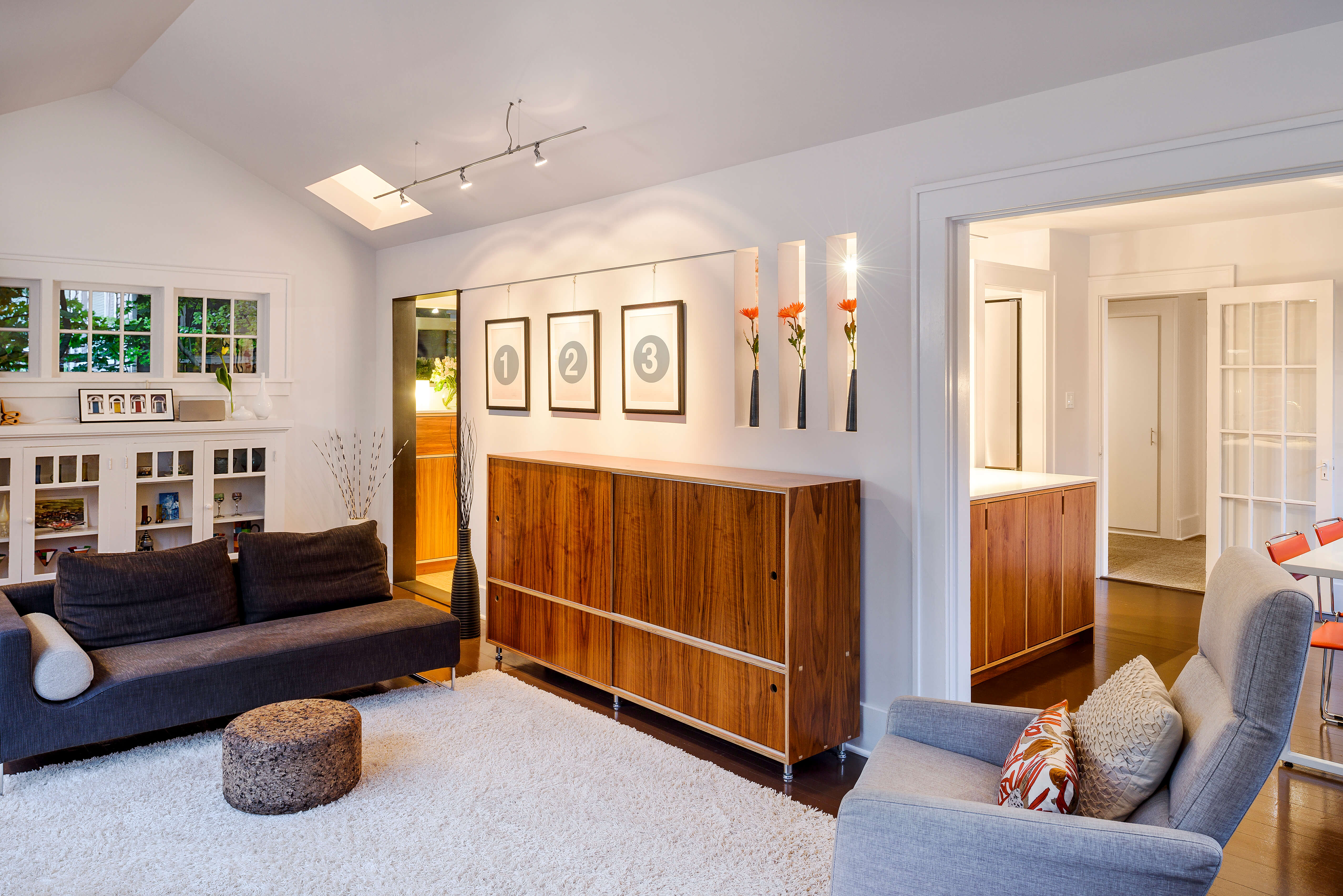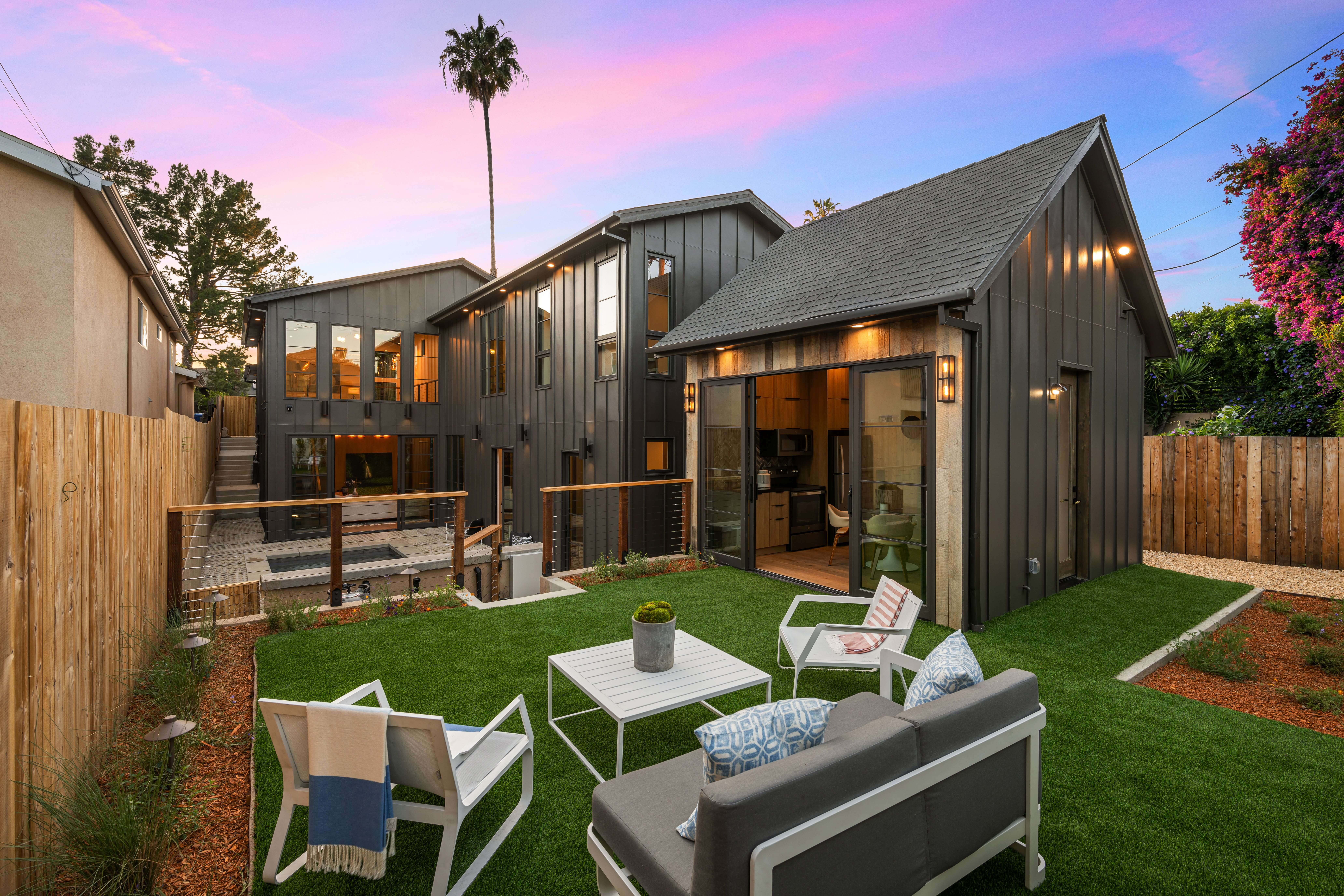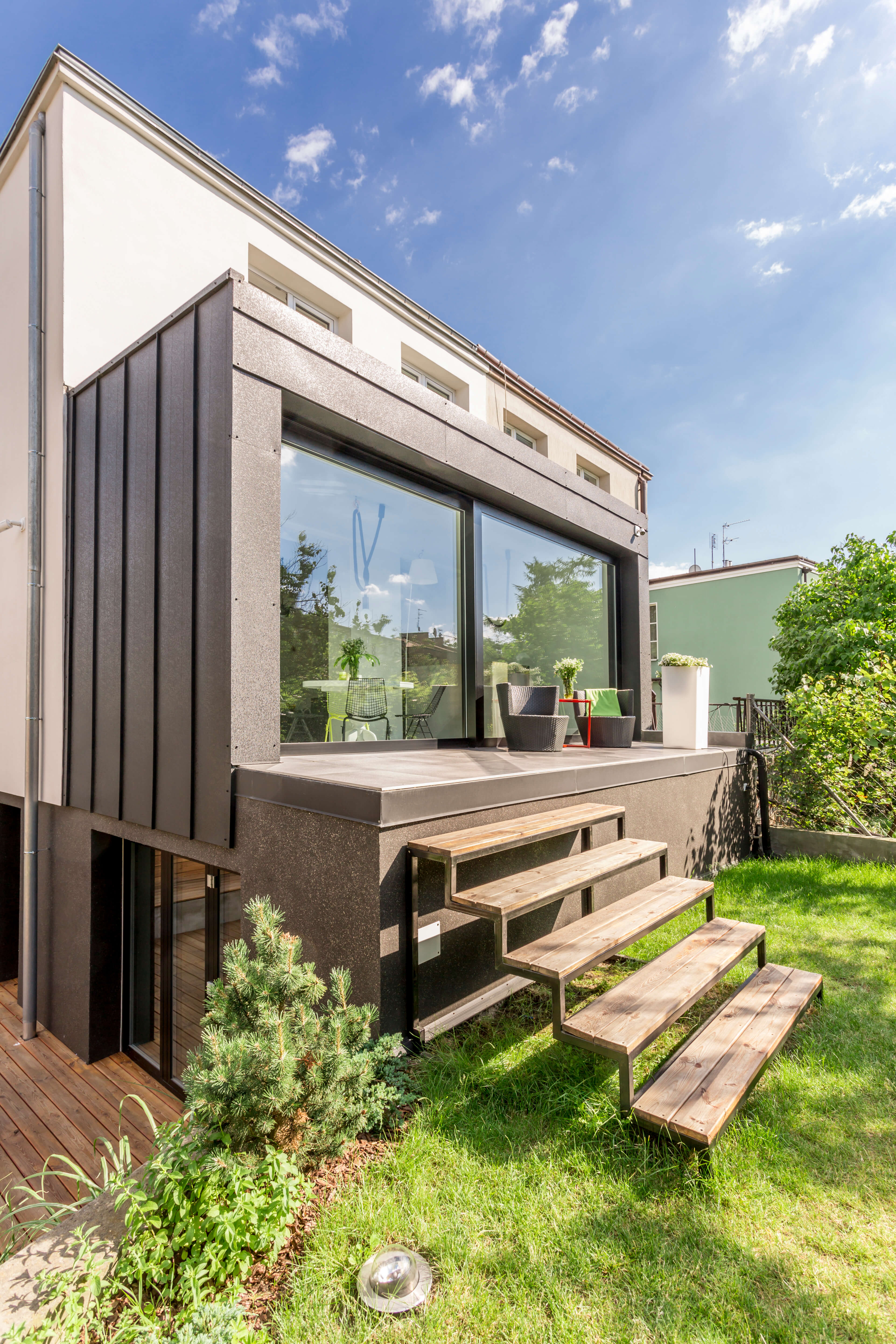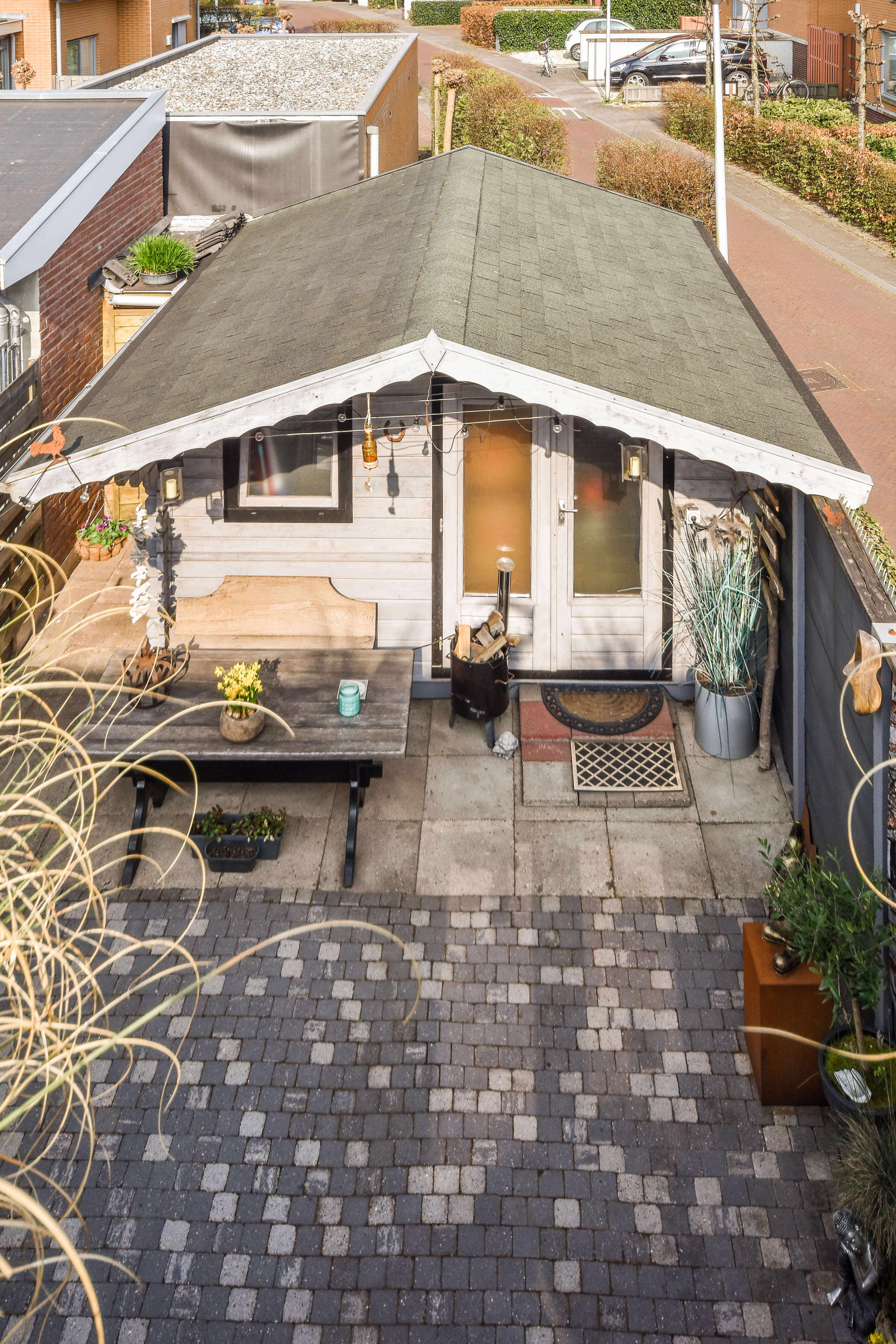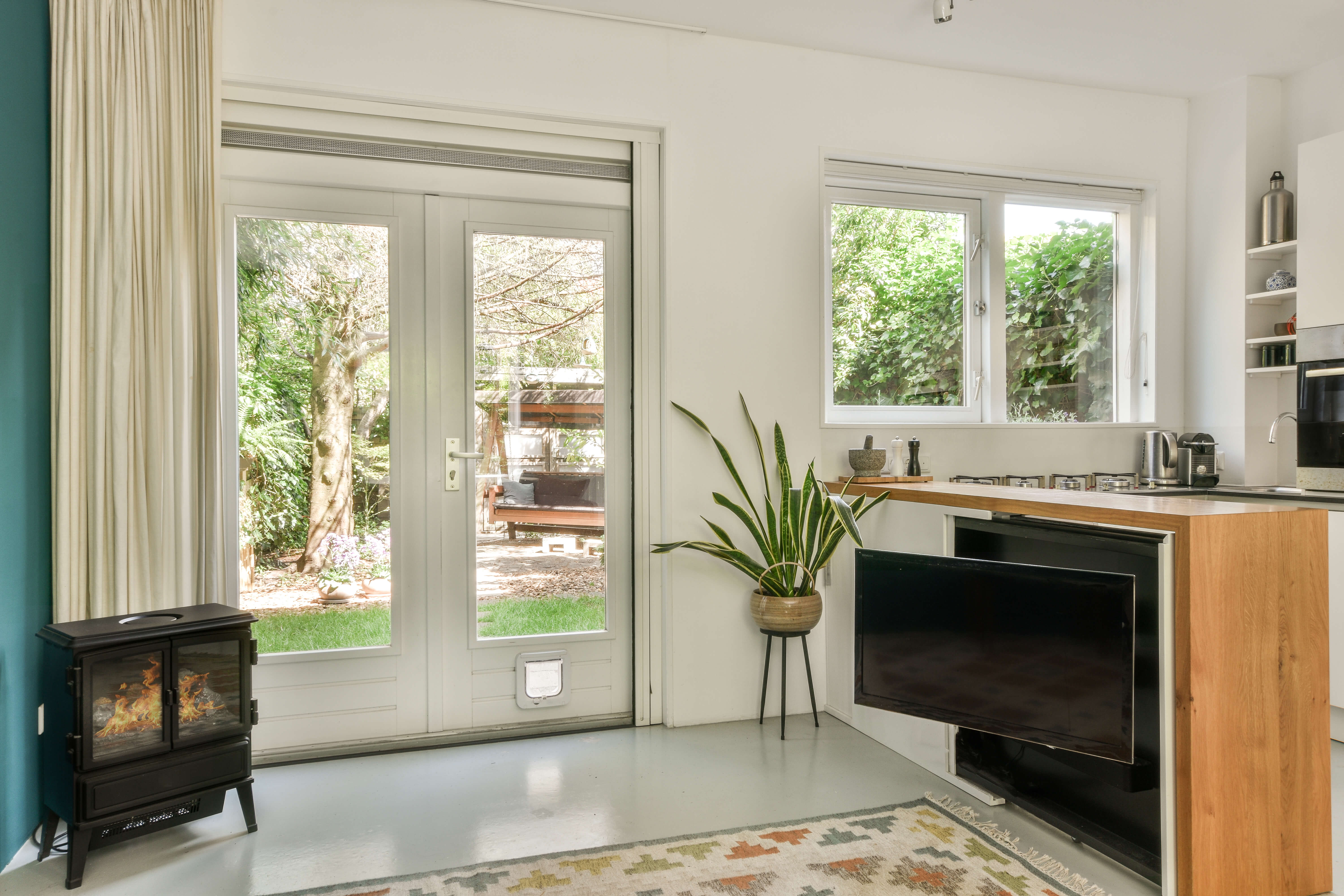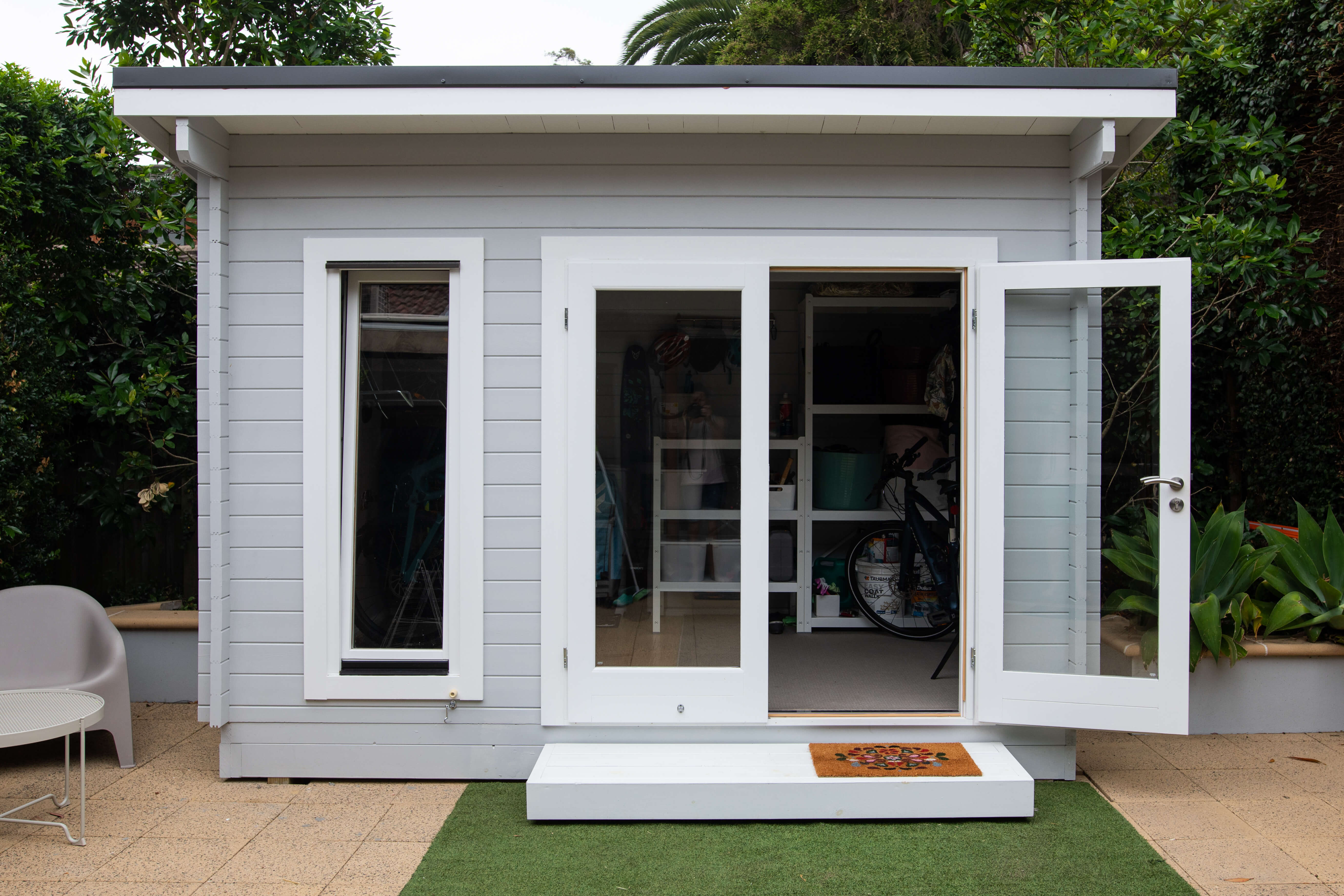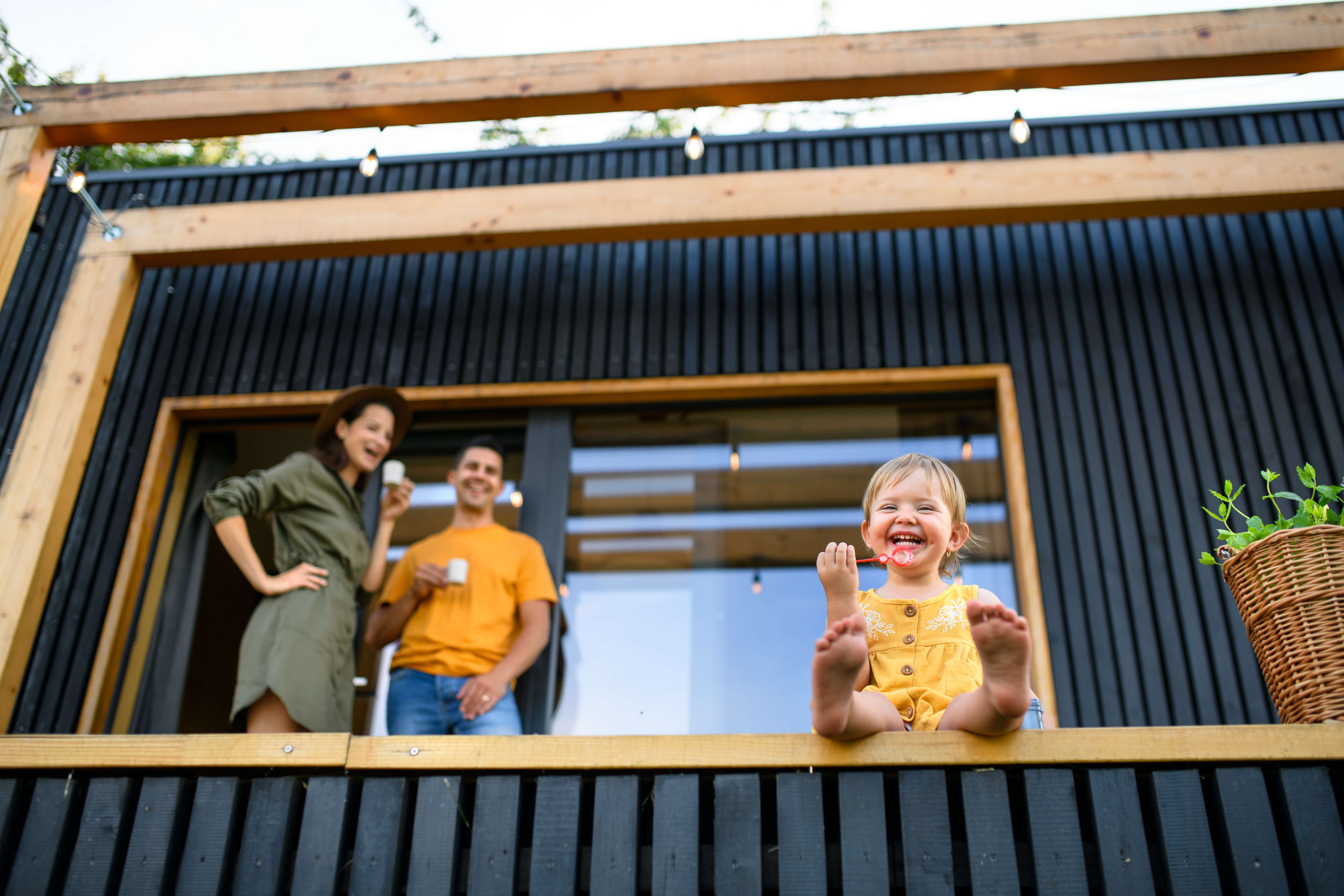Accessory Dwelling Unit (ADU) Contractors for Denver & Surrounding areas
Looking to add more space, create a rental unit, or build a private home office? We build custom accessory dwelling units (ADUs) across Denver and surrounding areas. From detached backyard cottages to garage conversions and basement suites, we handle everything — permits, zoning, design, and construction.
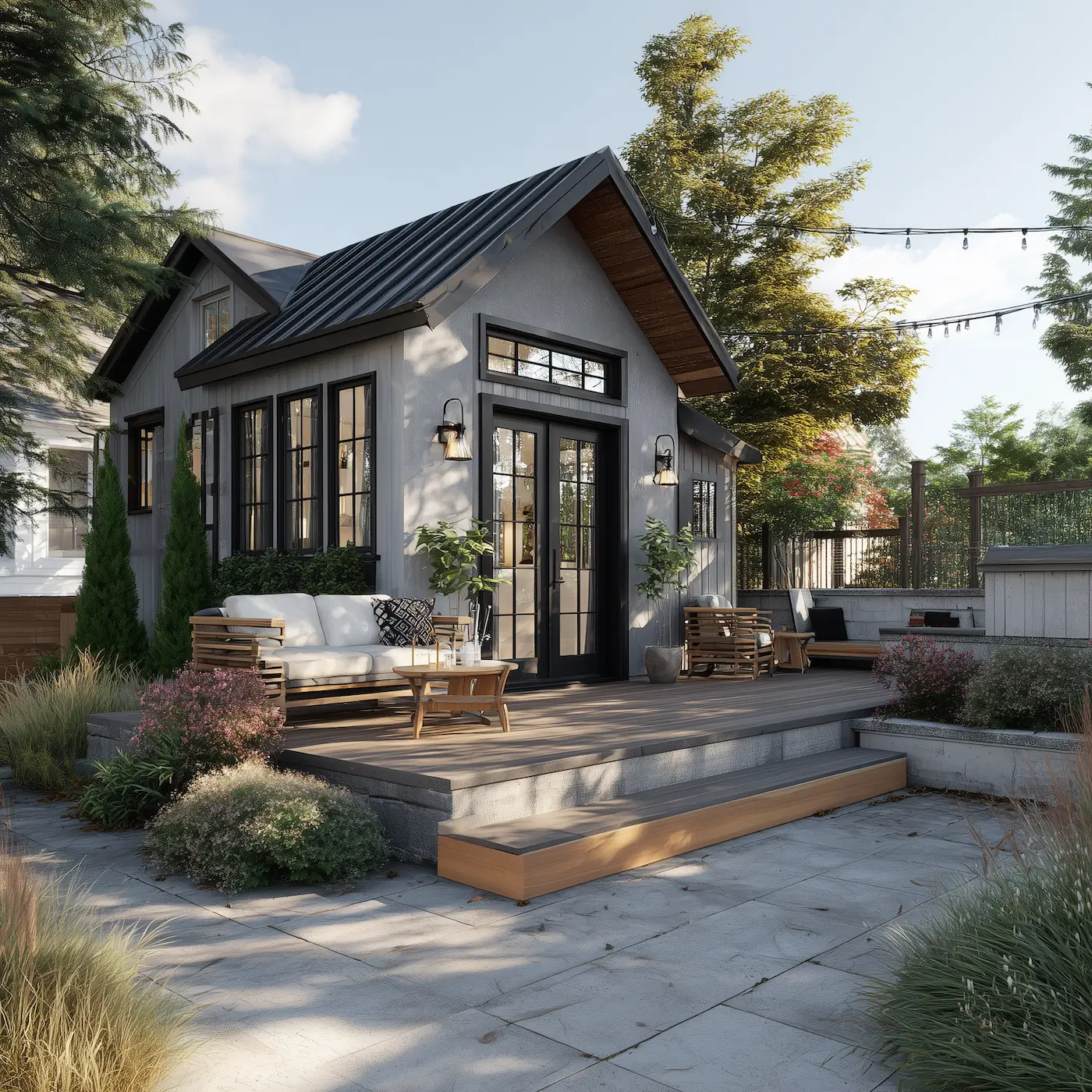
Get all your ADU questions answered
We've done our best to compile all of the most asked questions surrounding accessory dwelling units we've gotten through the years! Enjoy!
An ADU, or Accessory Dwelling Unit, is a smaller, self-contained home located on the same lot as a primary residence. It can be attached (like a basement apartment or above-garage unit) or detached (like a backyard cottage). ADUs typically have their own kitchen, bathroom, entrance, and utilities—making them ideal for renting out or housing extended family.
Yes—Denver passed an ordinance allowing ADUs in many residential zones. However, not every property qualifies automatically. Your lot size, zoning designation, and neighborhood overlays all impact what you can build. We always start ADU projects by verifying what’s allowed for your address.
ADUs are popular with:
- Homeowners looking for rental income
- Families housing aging parents or adult children
- Investors seeking long-term property value
- Owners who want a flexible work-from-home space or guest suite
They’re a smart way to add value, flexibility, and income to your property—without moving.
In most Denver zones, detached ADUs are capped at:
- 650 to 1,000 sq ft (depending on lot size)
- 1.5 stories or 24 feet tall
There are also setback, height, and lot coverage rules. We’ll help calculate your max buildable square footage based on your property’s zoning.
The most common types are:
- Detached new builds (e.g., backyard cottages)
- Garage conversions
- Above-garage apartments
- Basement conversions
- Bump-outs or additions
Not all types are permitted on every lot, so your zoning and existing structures matter.
Most ADU projects take 8–12 months from start to finish:
- 2–4 months for design and permitting
- 4–6 months for construction
- Weather, inspections, and material availability can affect the timeline. Detached ADUs typically take longer than basement or garage conversions.
Yes—Denver does not currently require the owner to live in the main house specifically. However, owner occupancy is required for one of the units (main or ADU). You can choose which one.
Yes, but not dramatically. Your property will be reassessed after the ADU is completed, and taxes may go up based on the added square footage and value. That said, many homeowners find the rental income more than offsets the increase.
A tiny home is often built on wheels and may not be permanently permitted as a dwelling. An ADU is a legal, permanent structure—with a foundation, utilities, and building code compliance. ADUs can be financed, insured, and rented out legally. Tiny homes often can’t.
Not always. Most ADUs share the same address as the main home, with something like “Unit B” or “Rear.” In some cases, you can apply for a secondary address, especially if the ADU has a separate utility meter. USPS policies and local zoning rules vary.
Still have questions?
Just reach out or ask for a quick quote!
Most ADUs in Denver cost between $180,000 and $400,000, depending on size, design, finishes, and whether it’s attached or detached. Costs break down into permitting, site prep, foundation, construction, utilities, and interior finishes. Detached units with full kitchens and baths are at the higher end, while simpler garage conversions can be more affordable. Keep in mind: Denver’s permitting and zoning process also adds cost and time.
Key cost drivers include:
- Size (more square footage = higher cost)
- Type (garage conversion, basement ADU, detached new build)
- Utility tie-ins (water, sewer, electric)
- Foundation type (slab vs. crawl space)
- Accessibility & site layout
- Zoning or historical overlay restrictions
Denver’s elevation, snow load requirements, and permit review times can also increase complexity and cost.
Yes—homeowners are often surprised by:
- Tap fees for new water/sewer connections (can be $10K+)
- Soils reports or structural engineering if required
- Upgraded electrical panels
- Permit review fees
- Lead/asbestos abatement (for older homes)
- Land survey costs for setback verification
We walk you through all potential soft and hard costs in the design phase to avoid surprises.
Yes, but not drastically. Your property will be reassessed after the ADU is built. The increase is based on the value of the new livable space—not the total construction cost. For example, if your ADU adds $150K of assessed value and you’re taxed at ~7%, your taxes may increase by around $875–$1,200 per year. It’s still often offset by rental income or added equity.
Yes. Common financing options include:
- Cash-out refinance
- Home equity loan (HELOAN)
- Home equity line of credit (HELOC)
- Renovation loan (Fannie Mae Homestyle / FHA 203k)
- Construction loan (less common for ADUs)
Each has pros/cons depending on your equity, credit score, and timeline. We work with local lenders who understand ADU projects specifically.
There are currently no major statewide grants for ADUs, but some local and federal programs offer:
- Energy efficiency rebates for insulation, solar, etc.
- Affordable housing incentives if you rent to low-income tenants (varies by year)
- Permit fee reductions for senior or caregiver units (case-by-case)
We stay up to date on active incentive programs and can guide you through them.
Yes. Adding an ADU may boost your property value, increase your loan-to-value ratio, and help you qualify for rental income consideration in future loan applications. If you rent out the unit legally, lenders may allow you to count a portion of that income toward your total income, making you eligible for better refi or purchase options.
Rental income can:
- Help qualify you for loans (if documented and legal)
- Increase your reported income (but also increases taxable income)
- Require a Schedule E tax filing
- Qualify you for landlord-specific deductions (depreciation, repairs, etc.)
We recommend speaking with a tax professional early in the process so you can structure your project to maximize benefits.
Many of our clients use creative financing solutions such as:
- HELOCs with interest-only periods
- Borrowing against retirement accounts (with tax consultation)
- Partnering with adult children or relatives
- Builder financing or payment milestones
We help you estimate total costs early and provide realistic financing guidance. You don’t need to have it all figured out on day one.
Most Denver ADUs that are rented out recoup their costs within 7–12 years, depending on:
- Construction cost
- Rental rate
- Occupancy
- Tax impact
Even if not rented, ADUs often add $100K+ to home value—making them a strong long-term investment, especially as multi-generational living and remote work increase.
Still have questions?
Just reach out or ask for a quick quote!
The ADU process typically includes:
- Feasibility check – We assess your lot’s zoning, utility access, and setback requirements.
- Design & architecture – Our team creates floor plans and elevations based on your goals and Denver zoning code.
- Permitting – We submit your plans to the city for approval, including structural, electrical, and site plans.
- Construction – Once approved, we begin site prep, foundation, framing, roofing, and interiors.
- Final inspections & CO – We coordinate all final inspections to receive your Certificate of Occupancy.
On average, the entire process takes 6–10 months, start to finish.
Design typically takes 4–8 weeks, depending on:
- Your responsiveness to design feedback
- Engineering requirements
- Whether you’re customizing or using a pre-approved plan
Design delays are one of the most common timeline killers, so staying engaged helps us keep things moving. -- We do offer a delay compensation when it comes to timelines! 😎
A full ADU plan set includes:
- Site plan showing setbacks, drainage, and placement
- Floor plans and elevations
- Roof framing and wall framing details
- Mechanical, electrical, and plumbing (MEP) diagrams
- Structural engineering (if required)
We handle all drafting and ensure plans meet Denver’s current IRC, IBC, and zoning standards.
Yes! We offer pre-permitted ADU plans that meet many Denver zoning codes.
Benefits include:
- Faster turnaround (up to 4 weeks saved)
- Lower design costs
- Proven buildability
However, they work best if your lot is flat and has standard setbacks. Custom plans are better for sloped or tight lots.
It's always a great time doing custom ADUs as well though. They often turn out to be one of the most fun things to build.
In Denver, you can technically act as an “owner-builder,” but it comes with major risk.
Hiring a licensed general contractor like DDB ensures:
- Code compliance and safety
- Liability coverage
- Project coordination
- Quality subcontractors
We handle the entire build so you don’t have to juggle 8+ trades and navigate city inspections alone.
We manage the entire permitting process on your behalf. That includes:
- Submitting plans to Denver Community Planning & Development
- Responding to reviewer comments
- Scheduling and coordinating inspections
Permits usually take 4–10 weeks depending on complexity and city backlog.
Our ADUs are built using traditional stick-frame construction, just like a standard home.
Depending on your site and budget, we may also explore:
- SIPs (structural insulated panels)
- Pre-fab components
- Accessory garages with living above
We prioritize energy efficiency, durability, and low maintenance.
Absolutely. We often match:
- Roof pitch and shingle color
- Siding materials (stucco, brick, lap siding)
- Window trims and exterior doors
- Paint schemes and architectural style
Matching your home can help with aesthetics, resale value, and HOA compliance.
The most common delays include:
- Permit review backlogs
- Design indecision or changes mid-process
- Utility connection approvals
- Weather impacts (especially in winter)
We build buffer time into our schedules and communicate clearly if anything shifts.
Denver requires multiple inspections, including:
- Footing and foundation
- Rough framing and electrical
- Plumbing and HVAC
- Insulation and drywall
- Final walk-through for Certificate of Occupancy
We schedule and coordinate every inspection, ensuring compliance at each phase.
Still have questions?
Just reach out or ask for a quick quote!
Yes. Any new construction of an ADU in Denver requires a building permit. You’ll need to submit plans that comply with zoning regulations, building codes, and safety standards. The process typically includes zoning review, architectural review, and inspections during and after construction. Skipping the permit process can lead to fines, forced removal, or problems during resale.
Not all properties in Denver are eligible. Your lot must be in a zone district that allows ADUs, such as E-SU, U-SU, or T-SU variants with a “1” suffix (like E-SU-A1). You can check your zoning at Denver Zoning Map. If your property isn’t zoned for ADUs, a rezoning process is possible but lengthy and not guaranteed.
Denver doesn’t enforce a minimum lot size for ADUs, but lot width and zone type determine eligibility. For example, some districts require a minimum 50-foot lot width. Detached ADUs also require specific rear and side setbacks, which vary by zoning district. Always consult a zoning expert or general contractor before assuming eligibility.
Yes, you can build a detached ADU above a garage or as a stand-alone unit in your backyard, provided it meets the city’s design and setback rules. Building above an existing garage is popular in Denver but may require structural reinforcement and additional permitting. The design must complement your primary home and comply with height, bulk plane, and lot coverage rules.
The maximum height for an ADU in Denver typically ranges from 20 to 24 feet, depending on the zoning district. However, additional restrictions apply based on bulk plane angles, roof type, and proximity to neighboring properties. Height is measured from the average finished grade, not the driveway or sidewalk level. Always check your specific zone’s rules.
Yes. Denver’s rules state that either the main house or the ADU must be owner-occupied. In other words, you can’t rent out both units unless you live in one of them. Additionally, the ADU is limited to two adults and their children. These rules help ensure ADUs are used for housing—not for short-term rentals or overcrowding.
Generally, no. Denver restricts short-term rentals to a homeowner’s primary residence. Since most ADUs are considered secondary dwellings, they are not eligible for Airbnb-type listings unless the owner lives in the ADU and rents the main house (and can prove it’s their primary residence). Violating this rule can lead to penalties and loss of license.
Setbacks vary by zone, but here are general rules for detached ADUs:
- 5 feet from side and rear property lines
- 10–20 feet from alleys or detached garages
- Must not encroach on utility easements
Setbacks are crucial for fire safety, utilities, and neighborhood privacy. Your contractor or designer should confirm exact requirements via a zoning analysis before designing your ADU.
n Denver, the ADU permitting process typically takes 6–12 weeks from submission to approval, assuming no revisions are needed. Factors that affect timing:
- Completeness of your drawings
- Zoning complexity
- Backlog in the city permitting system
- Whether you’re applying for additional variances
We recommend allocating 2–3 months just for permitting during your project timeline.
Building without a permit is a serious risk. The city can issue a stop-work order, fine you, require full demolition, or prevent future sale of your home until it’s resolved. In some cases, insurance may deny claims on unpermitted structures. It’s always worth doing it right—especially since permitted ADUs increase your property’s value and rental potential.
Still have questions?
Just reach out or ask for a quick quote!
In most Denver zones that allow ADUs, the owner must occupy either the main house or the ADU. That means yes—you can live in your ADU and rent out the main house. However, you must prove primary residency in one of the two units, usually through voter registration, a driver’s license, or utility bills. This is part of the city’s effort to keep ADUs community-oriented and not just investment rentals.
Yes, but only under strict rules. In Denver, you can rent your ADU on Airbnb only if it’s your primary residence. That means if you live in the main home, your ADU can’t be used as a short-term rental. If you live in the ADU, you can rent the main home short-term. Both units can’t be rented short-term at the same time. Also, you’ll need to register with the city and collect lodging taxes.
Yes, but there are limits. Denver allows home-based businesses in ADUs as long as they don’t increase foot traffic, parking demand, or noise. That means a remote office, art studio, or therapy practice may be okay—but retail shops, salons, and high-traffic operations likely won’t be. Always check with the city’s Zoning Administrator before launching any business from your ADU.
Yes, renting out your ADU long-term (30+ days) is legal in all Denver neighborhoods that allow ADUs. You’ll need to ensure your ADU is permitted, inspected, and up to code. You do not need a rental license for ADUs yet (as of 2025), but this could change. We recommend reviewing any HOA rules or deed restrictions as well.
Most ADUs in Denver share water and sewer lines with the main home. Electrical and gas lines can be shared or split depending on the configuration. If you plan to rent the ADU, you may want separate utility meters, which can be costly to install. Denver does not require separate metering, but it’s worth considering if you want clean financial separation between the units.
Absolutely. ADUs are commonly used as housing for aging parents, adult children, or extended family. As long as the ADU is legally permitted and you’re complying with the residency requirements, you can use it as personal, non-income housing. You’re not required to charge rent, file rental paperwork, or create a lease in this case.
Yes—garage conversions are one of the most common forms of ADUs in Denver. You can use it for guests, family, or as a rental. Just keep in mind that it still needs to meet all ADU building codes, including insulation, egress windows, plumbing, and HVAC. Detached garages will require a new address assignment from the city.
Technically yes, but you must still meet the residency requirements. You cannot leave both the main house and ADU vacant or use both as vacation rentals. One unit must remain your primary residence. If you’re building an ADU on a property that will be your second home, check with the Zoning Department for current exceptions or limitations.
Yes. Most ADUs are limited to 2 unrelated adults per unit, though this can vary depending on the zoning. The intent is to prevent overcrowding and maintain residential character. If you plan to house a large family or multiple roommates, be sure the square footage, egress, and safety features meet residential code standards.
Yes, and it’s one of the most impactful uses of ADUs. Denver encourages ADUs as a tool for multi-generational living. Whether you’re offering privacy for an aging parent or independence for an adult child with a disability, your ADU can be tailored to their mobility needs. We often incorporate universal design features like ramps, wide doors, and roll-in showers.
Still have questions?
Just reach out or ask for a quick quote!
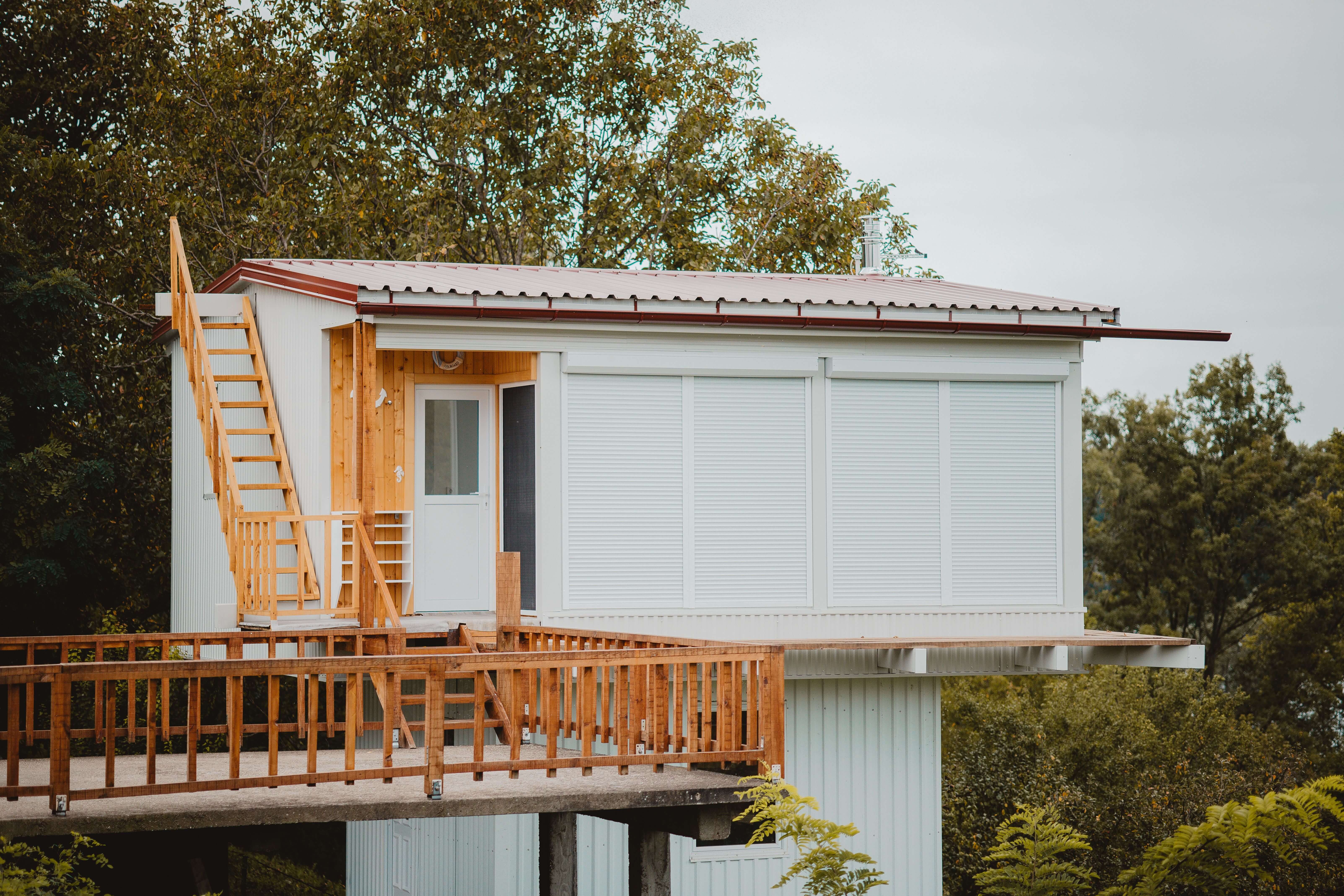
So what is an ADU?
An accessory dwelling unit (ADU) is a self-contained living space on your property. It can be attached to your home, built above a garage, converted from a basement, or built as a detached backyard cottage. With Colorado’s updated ADU legislation, it’s now easier than ever to add one — creating more flexibility for homeowners to generate rental income, house family, or increase property value.
Why Build an ADU in Denver?
Building an ADU can benefit Denver homeowners in multiple ways. The most important reason depends on what you want it to do!
Rental Income: Offset your mortgage or create steady cash flow.
Family: Give your family a nice, private place to stay.
Home Office or Studio: A separate, quiet space to work or create.
Increased Property Value: Well-built ADUs often significantly raise resale value.
Flexibility: Can be used now for family and later as a rental unit.
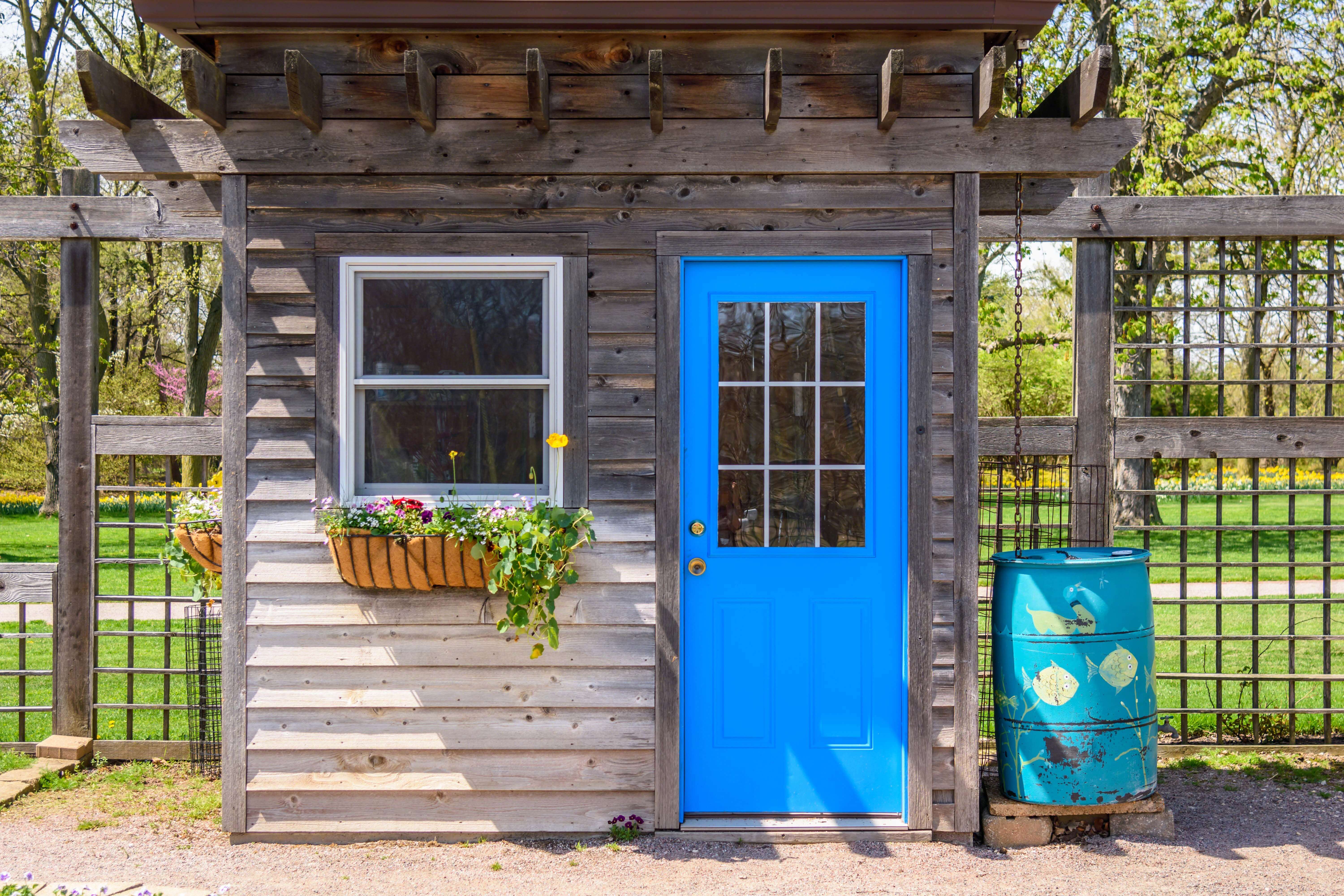
ADU Showcase
Gather inspiration from some of these fantastic ADU projects

